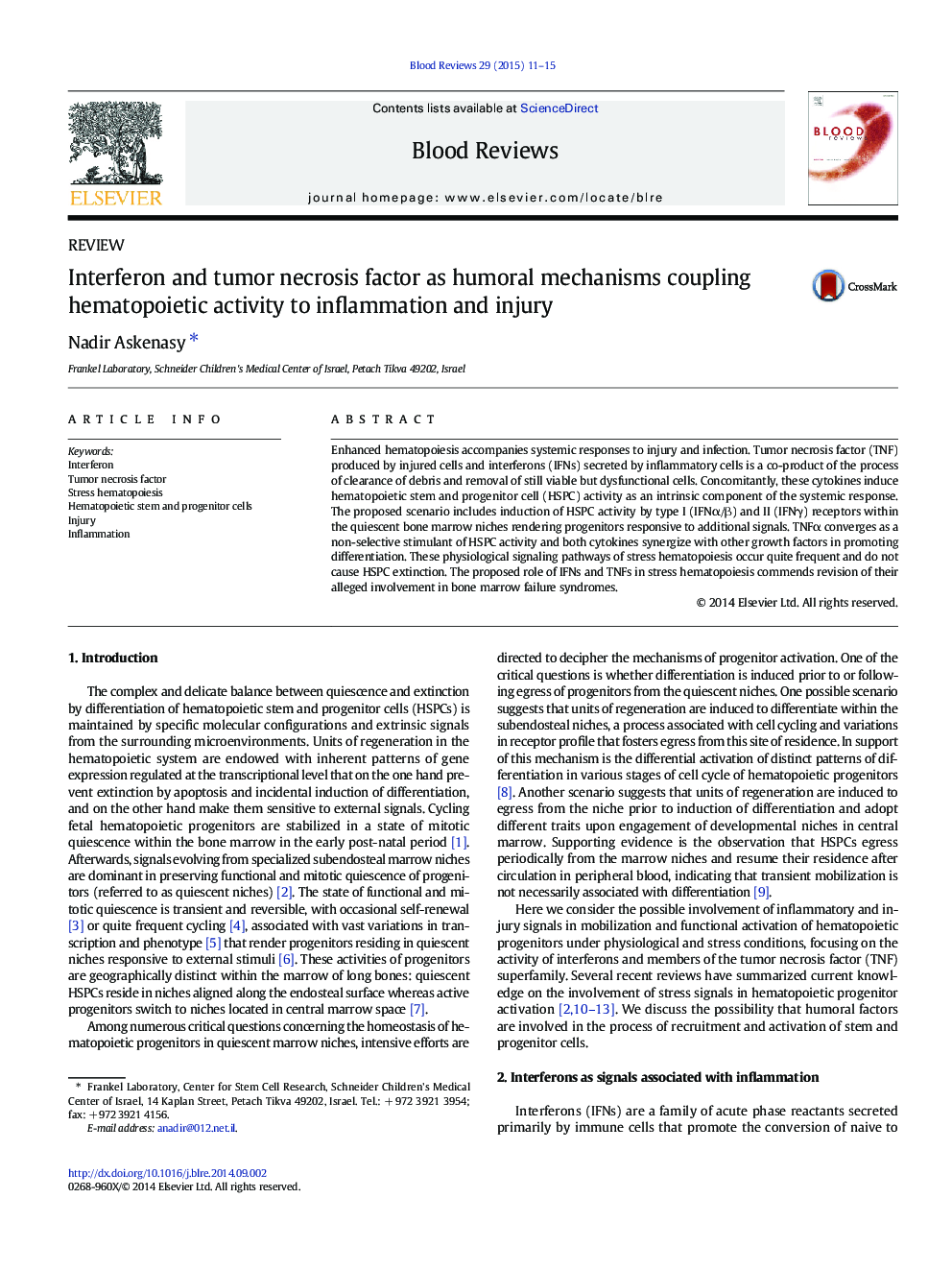| کد مقاله | کد نشریه | سال انتشار | مقاله انگلیسی | نسخه تمام متن |
|---|---|---|---|---|
| 2106133 | 1083476 | 2015 | 5 صفحه PDF | دانلود رایگان |
Enhanced hematopoiesis accompanies systemic responses to injury and infection. Tumor necrosis factor (TNF) produced by injured cells and interferons (IFNs) secreted by inflammatory cells is a co-product of the process of clearance of debris and removal of still viable but dysfunctional cells. Concomitantly, these cytokines induce hematopoietic stem and progenitor cell (HSPC) activity as an intrinsic component of the systemic response. The proposed scenario includes induction of HSPC activity by type I (IFNα/β) and II (IFNγ) receptors within the quiescent bone marrow niches rendering progenitors responsive to additional signals. TNFα converges as a non-selective stimulant of HSPC activity and both cytokines synergize with other growth factors in promoting differentiation. These physiological signaling pathways of stress hematopoiesis occur quite frequent and do not cause HSPC extinction. The proposed role of IFNs and TNFs in stress hematopoiesis commends revision of their alleged involvement in bone marrow failure syndromes.
Journal: Blood Reviews - Volume 29, Issue 1, January 2015, Pages 11–15
